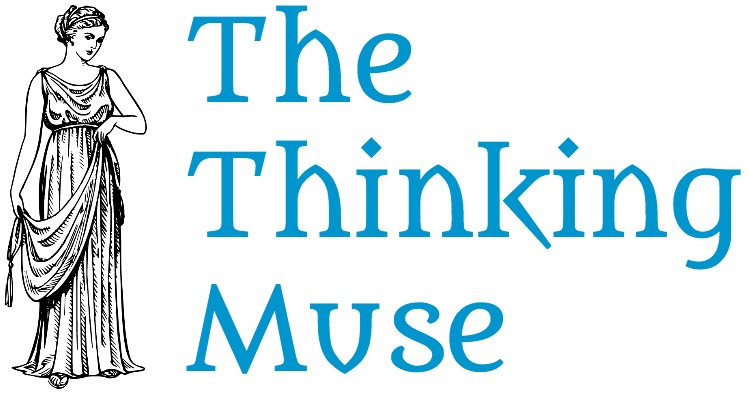What was the Enlightenment?

What do you think of when you hear the word enlightenment? The word has become synonymous with some sort of inner renewal or discovery about yourself. You might think of Buddha, or people like MLK or Ghandi. Maybe you think of a select group of people, that are somehow mentally superior to everyone else, or a wise old man meditating on the top of a mountain.
Many people know that the Enlightenment was a period of European history, and knowledge of it usually stops there. This article will give an outline of the Age of Enlightenment and it’s most important people, events, and effects on the course of history.
What was the Enlightenment?
The Enlightenment was an intellectual movement in western Europe in the late 1600s and throughout the 1700s. It was defined by scientific advances and new ideas in philosophy. The ways that the Enlightenment affected Europe were vast, but it was all based on a simple idea; the emphasis of human reason. This means that people should think about everything in a logical way. If it wasn’t practical or didn’t make sense, it was useless and should be abolished. Not everyone during this time looked at the Enlightenment exactly the same way. The idea of the Enlightenment manifested itself in science, government, economics, social structures, and religion.
What caused the Enlightenment?
Because the movement was based on an idea that was fundamentally simple, it can be hard to believe that it happened as late as it did. In reality, writings suggest some have thought this way since ancient Greece. The “Age of Enlightenment” happened when it did because it was the first time that these ideas actually began to change the landscape of European life. This is due to many contributing factors, but mainly the invention of the printing press. Once the means to produce writings on an industrialized scale became widespread, the ideas of one person could easily be read on the other side of a continent. Censorship became much more difficult because of this, so new ideas about government could also be shared. Because the printing press allowed for the spread of ideas, an ideological movement like the Enlightenment could occur.
What was the Scientific Revolution?
The Scientific Revolution was a movement based on the same principles of the Enlightenment. It occurred immediately before and during the Enlightenment, and was also due to printing press technology. The Scientific Revolution, as the name suggests, focused more on science and math than the Enlightenment, which focused on more philosophical matters. Because of the small differences, the Scientific Revolution is often thought of as part of the Enlightenment. The focus of this article will be more on the later part of the Enlightenment, but the Scientific Revolution was so impactful it is worth a mention. Scientists such as Isaac Newton, Francis Bacon, Rene Descartes, Johannes Kepler, Galileo, and Copernicus all made their appearances in this period, changing physics, mathematics, and the scientific method forever.
Who were some of the big players in the Enlightenment?
A scientific approach to thought could apply to more than actual science, and this is what the Enlightenment became defined by. Some of the first writers to be considered members of the Enlightenment were the Englishmen Thomas Hobbes and John Locke. Their ideas on government and the rights of the people have had deep impacts on the political landscape of the western world. In his book Leviathan, Thomas Hobbes argued that humans are naturally selfish and evil. If they were not constrained by some sort of system, society would go into disarray and chaos. He wrote in favor of a strong leader to a nation, who had power over the people to prevent them from destroying themselves. Locke had a quite different idea. He argued that all people are born with certain “natural rights”, which were the rights to life, liberty, and property. The purpose of government according to Locke was to protect each individual’s three natural rights. If the government takes any of these rights forcefully, Locke claims that they are not a true government, and the people have the right to overthrow it and form a new one. The ideas of Locke were very influential on the American Declaration of Independence and Constitution. The right to property was replaced with the pursuit of happiness by the founding fathers because they feared the people would demand free land as an unalienable right. By property, Locke did not necessarily mean land, but the possessions that an individual accumulated over their life.
In France, the new group of activist intellectuals called philosophes (not philosophers), also published their ideas on government. Montesquieu believed in the balance of powers in government. If the government ever decided to take an individual’s rights like Locke feared, the government might be too powerful for anybody to stop them. If instead there were separate branches in government that equally shared power over one another, the violation of citizen’s rights could be prevented.
Francois-Marie Arouet, better known as Voltaire, was among the most influential writers of the Enlightenment. He was relentless in his criticism of the hypocrisies of the Catholic church and the aristocracy. He rallied against corruption, war, intolerance, and fanaticism. In his widely read publications, he urged Europeans to defeat ignorance and think for themselves. Despite his advocation for individualism, Voltaire believed that an effective government must be lead by a powerful yet “enlightened” ruler. He was close friends with Frederick II of Prussia, who was among the “enlightened despots” of the day.
Who were the enlightened despots?
While it is arguable among historians what really defines an enlightened despot, the basic requirements are that a king or queen uses absolute power over their nation in order to enforce reforms that generally help the people along the lines of the Enlightenment. It is disputed which people in history were enlightened despots, but the case is the strongest for Maria Theresa of Austria, her son Joseph II of Austria, Frederick II (the Great) of Prussia, and Catherine the Great of Russia. All of these four ruled during or shortly after the Enlightenment. What is generally common between these monarchs is that they funded education, increased economic efficiency, and (usually) tried to make life better for the poor. Nobody is perfect though. Frederick II started a war that spread across all of Europe, Catherine the Great put a bloody end to a peasant rebellion, and most of Joseph II’s reforms were repealed by his brother after he died. Regardless, the enlightened despots were important because they showed that the ideas of the Enlightenment could actually be put into action, and become more than just ideas. It is this that makes the Enlightenment more impactful than just a bunch of books and letters.
How did the Enlightenment affect social structures?
Though the aristocracy in Europe remained strong after the Enlightenment, criticisms of it in the Age of Reason would lead to events that would forever change history. The aristocracy was the class of very wealthy families that were usually entitled by blood to large swaths of land, government positions, tax exemptions, and huge inheritances. Basically, they were rich by default. They did not need to achieve much to live in luxury. This was quite understandably upsetting to many of the philosophes of the Enlightenment. It was possible, though difficult, for a person of low birth to work hard and achieve great wealth, but even then they would never have the landed estates and special treatments of a noble. As mentioned before, Voltaire was one of the greatest opponents to the aristocracy. He pointed out to his readers that the richest noble was just the same as the poorest commoner. The philosophes were usually against things of tradition, because the idea of continuing something just because it’s old does not appeal much to reason. Aristocrats were almost the embodiment of tradition, and therefore were called unenlightened. Because of this, aristocrats saw the Enlightenment as a threat to their way of life, and rightly so (hint: French Revolution).
How did the Enlightenment change economics?
The nature of how money changed hands was vastly changed in the Enlightenment not only due to changing views on an old system, but also the birth of a new system. Of the several Enlightenment thinkers to come out of Scotland, probably the most famous went by the name of Adam Smith. In his book, An Inquiry into the Nature and Causes of the Wealth of Nations, he explored the idea that economic self-interest would actually play in favor of everyone in an economic community. His ideas would eventually adopt the name capitalism, unarguably one of the most world-changing ideas in modern history. Capitalism had an enemy in Adam Smith’s day, but it wasn’t the classic Cold War rival of communism, it was a much older system known as mercantilism. In mercantilism, the government enforces strong regulations in effort to keep more trade flowing into the country than out of the country. The theory was that this would make the country more prosperous, but import regulations would sometimes do more damage than good. The introduction of capitalism spelled the end of mercantilism in Europe.
How did the Enlightenment change religion?
The Enlightenment seriously questioned anything of tradition. It was strongly against superstition and fanaticism of any sort. To the philosophes, the Catholic church became a natural target. They believed it preached the nonsensical and caused ignorance on a massive scale. Despite this, many prominent philosophes were not atheists. Many of them believed in a new “religion” born out of the Enlightenment called deism. Deism is the belief that God created the universe so that it can function on its own. After creation, God stopped interfering with the universe, and hasn’t since. This was followed by many Enlightenment figures because thanks to the Scientific Revolution, they learned that the universe is extremely complex, with countless factors and laws. But since everything seems to obey these laws, the universe must be self-functioning. Of course, not all philosophes believed in deism or atheism, but they’re worth a mention when talking about the Enlightenment.
When did the Enlightenment end?
There is no end to a way of thinking, and many hold Enlightenment views today, but the Age of Reason itself is often thought of as ending around the French Revolution. The French Revolution (which started in 1789) was a very complex event and could have its own article, but for the sake of brevity, the French Revolution was the overthrowing of the French king and the French aristocracy. The middle and lower classes took control of the country. What started as the culmination of Enlightenment ideas and the glorious liberation of the French people morphed into a bloody power struggle and one of the darkest periods of French history. The strong nationalism that arose in Europe during the Napoleonic Wars right after the French Revolution was a strong sign that the Age of Enlightenment had ended. In its place came the Romantic movement, which the next article of the month will be about. The effects that the Enlightenment and the Romantic movement have had on today’s world will also be covered in the next article. Thank you for reading, and I hope this has been an interesting and informational article. If you are interested in learning more about the Enlightenment, you can look at some of the sources that I used for this article below.
Author: The content of this article was conceived of and created by Paul Schneider-Krumpus for The Thinking Muse.
Resources
“Age of Enlightenment.” Wikipedia. Wikimedia Foundation, n.d. Web. 5 Aug. 2016.
Campbell, Heather M. The Emergence of Modern Europe: C. 1500 to 1788. New York: Britannica Educational Pub., in Association with Rosen Educational Services, 2011. Print.
“Internet History Sourcebooks.” Internet History Sourcebooks. N.p., n.d. Web. 11 Aug. 2016 <http://sourcebooks.fordham.edu/halsall/mod/modsbook10.asp>.
Palmer, R. R., Joel Colton, and Lloyd S. Kramer. A History of Europe in the Modern World. N.p.: n.p., n.d. Print.




